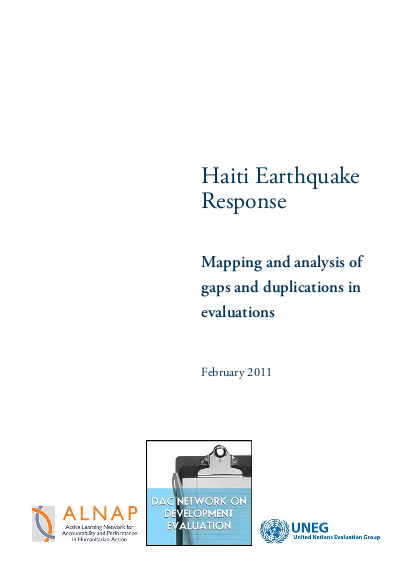
Objectives:
The Haiti earthquake humanitarian response has generated a sizeable evaluative effort, not unlike that following the Indian Ocean tsunami of December 2004. To try to make this effort more joined up, coherent, and less of a burden on operational agencies and local communities – while also providing good coverage and maximizing learning and accountability – ALNAP has worked with the OECD-DAC Evaluation Network, the UN Evaluation Group and others to bring together the key actors involved in evaluation.
The present report is part of a planned sequence of products, representing three stages of learning: learning before, learning during and learning after.
Resource collections
- Evaluating humanitarian action
- Monitoring and Evaluation (M&E)
- Monitoring of humanitarian action
- UN Habitat - Urban Response Collection
- Urban Response - Urban Crisis Preparedness and Risk Reduction
- Urban Response Collection - Community Engagement and Social Cohesion
- Urban Response Collection - Economic Recovery
- Urban Response Collection - Environment and Climate Change
- Urban Response Collection - Housing, Land and Property
- Urban Response Collection - Urban Crisis Response, Recovery and Reconstruction
- Urban Response Collection - Urban Resilience
- Use of evaluation evidence